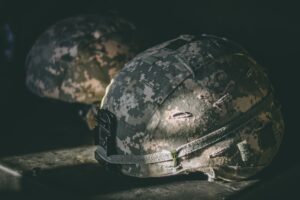War Crimes? What war crimes? Nothing to see here
February 4, 2021
Burying crimes under layers of legal process is tantamount to cover-up. And cover-ups destroy democracy. Just another one to add to the list of evidence showing the Morrison government’s problem with accountability - sports rorts and the bonanza for Liberal donors from the Leppington Triangle land deal being just two examples.

With the appointment of Mark Weinberg QC to lead the special investigation into war crimes allegations up to 39 murders allegedly committed by 19 current and former special forces soldiers the government has effectively smothered the issue.
It took more than a decade after the first alleged killings to produce a heavily redacted account of what transpired. Whos to say that the Special Investigation wont also take a decade before any criminal prosecution is concluded, particularly in a pandemic-constrained world?
In his report, Major General Paul Brereton, a senior Army Reserve officer who is also a judge of the NSW Court of Appeal, laid the blame squarely on the shoulders of the Non-Commissioned Officers who led operational patrols. He exonerated the military chain of command, with the astonishing justification that they did not know what was going on. And he absolved from any responsibility at all the Australian government, which made the decisions to commit the Australian Defence Force (ADF) to armed combat in Afghanistan.
As an all-volunteer force, the ADF is necessarily highly professional: without mass, we need advanced capabilities and the full suite of skills to operate them. For Australia, warfare cannot be the business of fools or felons. Commanders must always be in control, and, to meet their accountabilities and responsibilities, governments must always be fully aware of the ADFs activities and their consequences. Ignorance within the chain of command and by ministers is totally unacceptable. Current ministers need to reassure themselves that these circumstances cannot reoccur.
War crimes are a serious stain on Australias image as a rule of law democracy that advocates and upholds international legal standards in the conduct of armed conflict. More than that, they represent a fundamental erosion of the integrity and reputation of the ADF as the trusted instrument of government strategic policy. If Australia cannot be trusted to carry out its international defence activities legally and honourably, and if the ADF cannot be trusted to carry out the governments directions in full accord with the Laws of Armed Conflict, how can the electors who vote governments in (and out) trust either the government or the ADF?
Without full transparency and accountability, they cant. Burying crimes under layers of legal process is tantamount to cover-up. And cover-ups destroy democracy which, as so many commentators point out, is under threat everywhere.
This is why we need a Royal Commission into the war crimes allegations. Of course, the alleged perpetrators must be investigated, briefs of evidence assembled, charges laid if appropriate, trials conducted and sentences imposed where warranted. This is a massive undertaking, especially where the events occurred in a war zone, the local witnesses are non-English speaking non-combatants, the military witnesses are accustomed to operating in a cocoon of secrecy (and consequent unaccountability) and the investigators themselves are less experienced perhaps in conducting forensic analysis relating to homicide and murder across jurisdictions, languages and cultures.
But the work of the Special Investigator does not go to the heart of the issue, because the war crimes represent systemic failures in decision and command, not just moral failure on the part of a few bad apples. When wars become purposeless, soldiers lack purpose and direction. They will fill the void, especially when repeated deployments and heightened exposures reduce moral sensibility.
It is the job of the chain of command to ensure that soldiers are not left to their own devices, just as it is the job of government to ensure that the chain of command is both able to do its job and actually does its job. It is simply not good enough to go after the perpetrators when they are themselves symptomatic of a more serious and more dangerous systemic failure.
We should recall that it took two Royal Commissions to get to the bottom of the systemic issues that led to the Voyager incident in 1964 the Royal Australian Navys biggest peacetime disaster. Owing to cover-ups, the first Royal Commission led to a miscarriage of justice. In conducting a Royal Commission into war crimes, the government would not just be addressing the fundamental causation factors that resulted in criminal acts. It would be acting in the national interest, and in its own interest as the ultimate custodian of legality and probity.
Such a Royal Commission is not dependent on the Special Investigators work for its raison d__tre. Care must be taken to ensure that the Terms of Reference commissioning a Royal Commission do not overshadow the Special Investigator or compromise his inquiries. Indeed, it needs to be quite separate from the Special Investigator, since Major General Breretons review of the circumstances that generated the war crimes allegations is sufficiently robust to justify the root and branch evaluation of the systemic failures of which the war crimes are symptomatic.
To restore the ADFs national reputation, and Australias international reputation, the Royal Commission should be convened without delay.
The Australia Institute published a detailed discussion paper on Major General Breretons war crimes report here.
